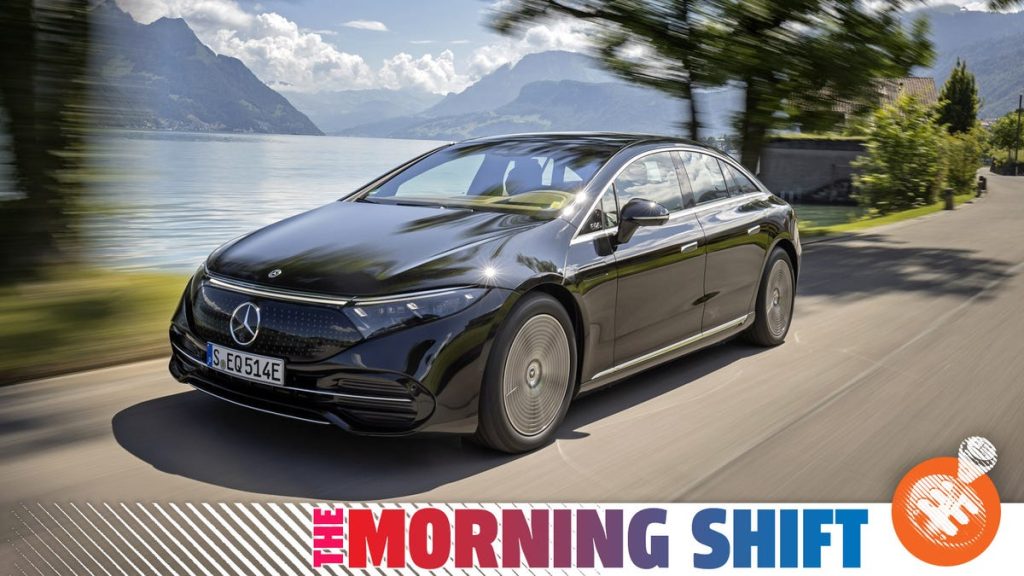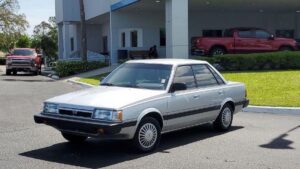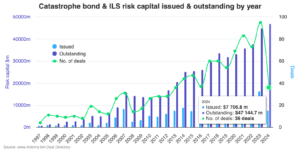Mercedes Says Law Is Preventing EV Performance Boost Subscriptions in Europe

Image: Mercedes-Benz
Mercedes-Benz can’t offer its controversial new performance subscriptions in Europe, Volkswagen is looking for a partner for its future electric trucks, and the EV picture continues to be a lot less convincing across large swaths of the country where infrastructure is especially dire. All that and more in this Tuesday edition of The Morning Shift for November 29, 2022.
1st Gear: Europe Was Always Better at Consumer Advocacy Anyway
By now you may have caught wind of Mercedes’ wonderful idea to allow owners of EQ models to unlock more horsepower through a yearly subscription. It costs $1,200 and, depending on the particular model, could reduce 0-60 times by as much as nine-tenths of a second. Mercedes can get away with that here in the States, but overseas, it’s running into some headwinds, as Top Gear Netherlands recently reported. Translated, the article reads:
In the US, Mercedes customers can increase the assets of their EQE or EQS software-wise for an amount of $1,200 a year. We expected this subscription to come to the Netherlands soon, but apparently it is not allowed by European legislation at the moment.
A spokesperson for Mercedes Netherlands reports to TopGear that the American colleagues are indeed offering more power through a subscription. In Europe, Mercedes will not yet offer subscriptions to add extra horsepower to electric models. The spokesperson says it ‘depends on legal matters.’
In the US, there are no legal objections to the subscriptions, but in Europe the legal department has yet to get started. In terms of content, Mercedes cannot yet say much about it, except that the fact that it is about engine power creates legal obstacles. Something BMW has no problems with with the seat heating subscription.
There are actually legislative challenges brewing in the U.S., but nothing in the books yet. They also have fallen on individual states to fight thus far, like New Jersey.
It’s unclear precisely why Mercedes can’t offer the power increase on a subscription basis in Europe, as the spokesperson declined to explain the issue to Top Gear. Top Gear does rightly point out, however, that competitors like Polestar can ship their cars from the factory with the same internals and different performance metrics, so long as it charges for the power/range difference up front, rather than down the line in the form of a recurring payment.
2nd Gear: Volkswagen Might Help Foxconn Make Cars
Foxconn has been in the news for every wrong reason lately, but Volkswagen seems undeterred. The German automaker is considering a partnership with the Chinese electronic manufacturing giant to build its Scout SUVs and trucks, Automobilwoche reported Tuesday. Foxconn currently produces Lordstown electric trucks out of the Ohio factory it purchased last year. Via Automotive News:
VW is in talks with Foxconn for the Taiwanese contract manufacturer to build Scout vehicles, Automotive News sister publication Automobilwoche has learned from VW sources.
Foxconn, best known as the manufacturer of the Apple iPhone, started manufacturing Lordstown’s Endurance pickups in September after buying the company’s Ohio facility bought by Lordstown from General Motors in 2019.
VW said in May it plans to revive the long dormant Scout off-road nameplate that it acquired last year when its heavy-truck brand merged with Navistar.
Foxconn last month unveiled two new electric vehicles prototypes highlighting its ambitions to become a major car manufacturer, replicating its success in electronics assembly as Apple’s biggest manufacturing partner. A partnership with VW could give Foxconn a major breakthrough.
If Foxconn doesn’t work out, Volkswagen has been chatting with Magna Steyr too. Everyone chats with Magna at one point or another.
3rd Gear: EVs and Middle America
It’s no secret that rural areas and electric vehicles don’t mix, or at least haven’t yet. A recent study from S&P Global suggests that only 16 percent of the country’s EVs are registered in 22 non-costal “heartland” states, like Wyoming, North Dakota and Arkansas. Once again, Automotive News:
Among the states in the S&P study, Wyoming and North Dakota had the lowest national EV share, at essentially 0 percent in the January to August period. Wyoming had 146 EV sales in the period while North Dakota had 143.
As a group, EV adoption was both low and stagnant among the 22 states compared with coastal states.
“While the heartland states represent 27.1 percent of total U.S. vehicle retail sales through August, their representation in EV adoption has remained stagnant from 2021 into this year at a tepid 15.5 percent share,” S&P Global said. “Only Colorado and Nevada (and to a minuscule extent, Utah) out-punch their overall retail share in EV representation.”
The primary issue would appear to be the lack of charging availability, which the Infrastructure Investment and Jobs Act is meant to alleviate. The emergence of all-electric utility vehicles, particularly pickup trucks, may help things along too. Last year I cold-called an Oklahoma Ford dealer playing an uninformed buyer interested in EVs that had questions about the Mustang Mach-E. The poor salesman seemed confused more than anything else.
4th Gear: Kia’s U.S. COO has Choice Words About the Inflation Reduction Act
The Inflation Reduction Act, you see, is the reason why Kia and Hyundai can’t offer their electric vehicles in the U.S. anymore with a $7,500 federal tax credit. This is a problem for them, because their EVs only just hit the market, and they happen to be pretty dang good. We’ve heard a little from Hyundai’s Korean leadership about how they feel about this, but we haven’t heard much from the North American side of the operation — until now. Take it away, Kia America COO Steve Center and Automotive News:
“To have anything just changed ‘presto change-o’ is very disruptive to everybody,” Center told Automotive News at the Los Angeles Auto Show this month.
“You have the whole industry aggressively developing and getting ready to manufacture electric cars … and you go in, you change it and it disrupts everybody’s planning,” he said.
[…]
“We’re going to make the cars and there’s a certain cost given the technology maturity and scale that we’re at today,” Center said. “So it makes things very difficult for us to comply with both what we want to do and the aspirational objectives of the government.”
He said as the market begins to look beyond early adopters to target more mainstream consumers, the limited list of vehicles eligible for the tax credit will have a “detrimental impact.”
“The dollars are a little more dear to the [middle part of the market],” Center said. “And there’s only so much discounting a manufacturer can do.”
Really all automakers can do now is plan to open a U.S. production facility — and some battery plants, too — as quickly as possible. Unfortunately, ASAP still means about 2024, 2025 at the earliest, the way things are going.
5th Gear: Automakers Face China Lockdowns
Volkswagen has temporarily shut down activity at its Chengdu plant, which it operates with FAW, due to COVID-19 diagnosis spikes around China. Auto News, one last time:
While low by global standards, China’s case numbers have hit record highs for days, with Chengdu residents subjected to mass testing from Nov. 23 to Nov. 27.
BMW’s CEO Oliver Zipse said on Friday the company’s plants in China were running as normal but that offices were closed with staff working from home. Zipse added that the automaker sees further COVID-19-related lockdowns in China as a risk for next year, despite healthy demand there for the automaker’s full-electric models and expectations of stable global sales.
Mercedes-Benz did not immediately respond to a request for comment on whether its plants were affected.
Last week, Volkswagen lowered its annual sales forecast for China by 14 percent, due to COVID-related plant disruptions.
In recent days, thousands of protestors have taken to streets across China, decrying months-long lockdowns that have left people isolated, in some cases without food and medicine, and trapped workers in factories with no pay. The Chinese government also appears to be fighting word of this getting out, by flooding ill-equipped social media networks like Twitter with content designed to suppress the news.
Reverse: Graham Hill
On this day in 1975, 47 years ago, the world lost two-time Formula 1 champion Graham Hill in a plane crash. Hill was piloting at the time, and five members of his Embassy Racing team were onboard and killed in the accident as well. Below, a story dated Nov. 30, 1975 that appeared in the New York Times:
Neutral: Ferrari Being Ferrari
I’m not saying Mattia Binotto was a flawless leader, but once again, Ferrari’s hoping to solve what is likely a systemic problem — in that it transcends multiple generations of the team, drivers and personnel — by axing the guy at the top. If only it were that simple. I don’t know about you, but I’ve seen this happen enough times in multiple sports to know how this’ll probably go. What do you think?




